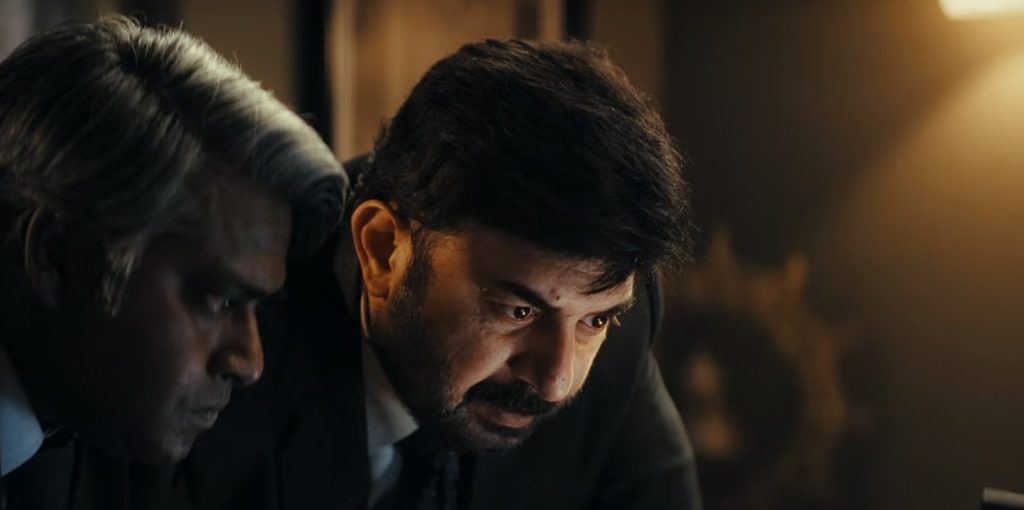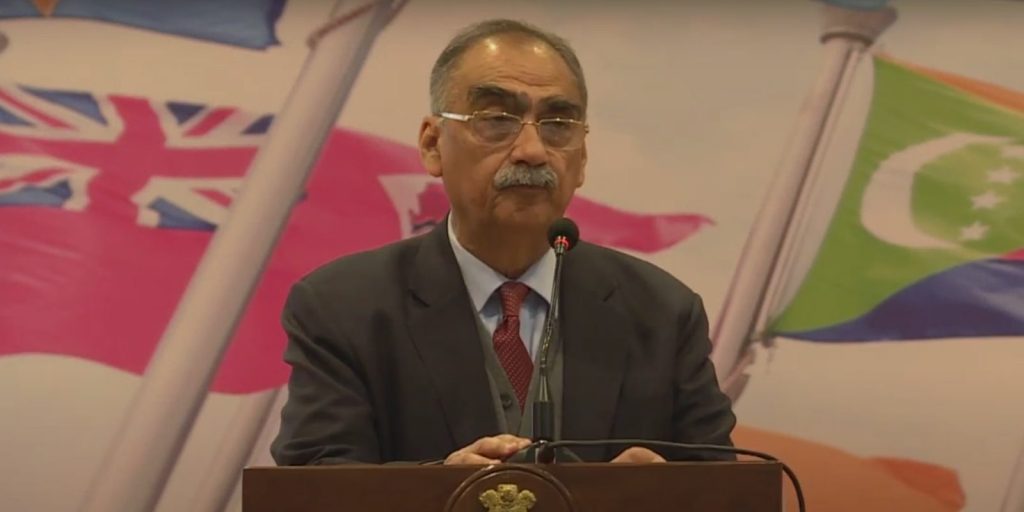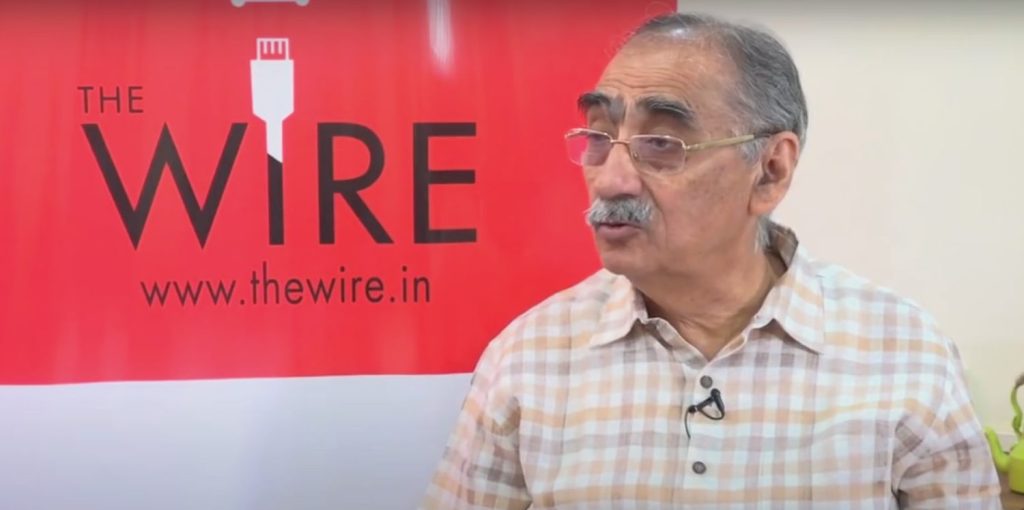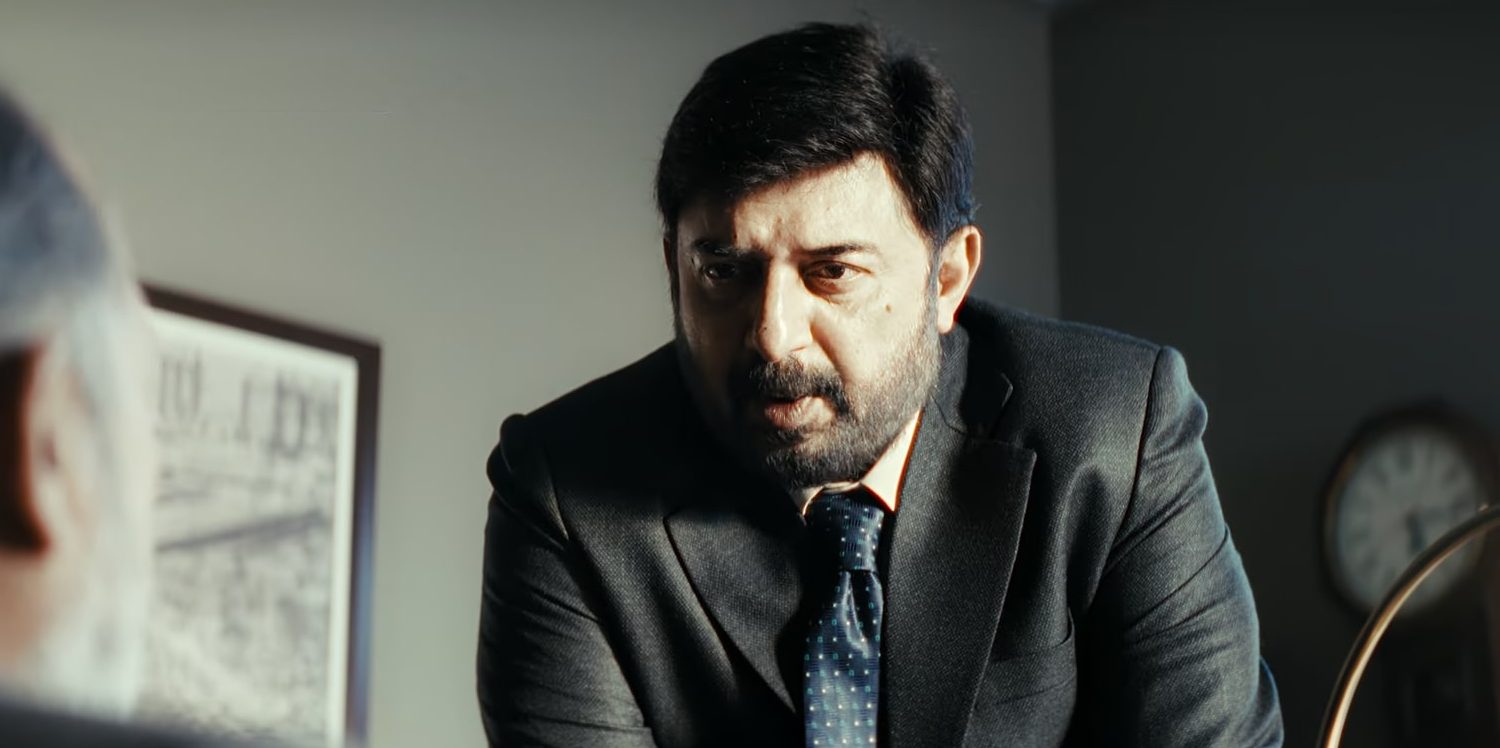The Netflix show, ‘IC 814: The Kandahar Hijack,’ depicts the harrowing account of the titular Indian Airlines flight that was boarded by terrorists and hijacked. After taking off from Kathmandu, the flight crew and its passengers are left in a terrifying state when their trip to New Delhi is diverted across several landing sites before finally arriving at Kandahar, Afghanistan. To save the inhabitants, the Indian government appoints a negotiation team, among whom the joint Secretary of the Ministry of External Affairs, D.R. Sivaramakrishnan, also known as DRS, acts as a voice of reason to finally extricate the passengers from their hellish nightmare and bring them back home. SPOILERS AHEAD.
The Real-Life Counterpart of DRS
DRS is a semi-fictional character created by Anubhav Sinha and Trishant Srivastava from a story by Adrian Levy. He is inspired by Vivek Katju, the Joint Secretary of the Ministry of Home Affairs, who played a pivotal role in defusing the hijacking of flight IC 814. In the show, the character is one of the leading voices in the operation to defuse the hijacking situation. He works closely with Vijaybhan Singh, the Minister of External Affairs, to try to piece together the situation as calmly and succinctly as possible. Of all the operators, DRS is the most level-headed and well-equipped to deal with the fallout of the situation and do what is best to save the lives of those stranded in the plane. However, he is bogged down like all the others by the bureaucracy and politics at play that hamstrung the hands of the operation.

His real-life counterpart, Vivek Katju, was appointed on December 27, 1999, as the leader of the negotiation team that was sent to Kandahar to listen to the demands of the hijackers and to rescue the hostages. His team also comprised Ajit Doval, a Home Ministry Official, and C.D. Sahay, who was a member of the Cabinet Secretariat. As a former IFS officer and the head of the Iran-Pakistan-Afghanistan division in the Foreign Ministry, the man had a lot of experience and knowledge with regard to establishing relations on Afghanistan soil. He and his team set up negotiations with the hijackers, who demanded the release of 36 terrorists from a wishlist in exchange for the safe passage of the passengers.

Initially, India agreed to release five of the 36 on the list, but Vivek Katju insisted that India would choose the five who were to be released, and they would not be Indian nationals. Parts of this negotiation process are accurately portrayed in the show. When a stalemate position was established, both sides decided to compromise. Instead of the initial list of incarcerated terrorists, the hijackers demanded the release of three militants: Maulana Masood Azhar, Ahmad Omar Sayid, and Mushtaq Ahmed Zarqar. After the terrorists were exchanged, the passengers were released, and Katju and his team completed their mission. In the show, the final exchange of terrorists and passengers is depicted as a pyrrhic victory.
Vivek Katju is a Political and Social Commentator Today
Vivek Katju played an essential role in resolving the terrifying situation of Airbus IC 814. Following his work as a negotiator, the Joint Secretary was appointed as the Ambassador of India to Myanmar in 2001. He performed his assignment for a few months before being picked as an envoy to Afghanistan after relations were reopened between the two countries. As a Persian language expert, he was well-suited for the task and had an extensive understanding of the region. The show covers the rough diplomatic ties between India and Afghanistan, a rift that Katju’s fictional counterpart, DRS, tries to repair throughout the narrative. Vivek Katju continued his work in the Ministry of Home Affairs for several years before finally retiring from service.

Since his departure from politics, the man has remained in touch with current affairs and often espouses his thoughts on a variety of topics as a public commentator. He has written several articles on climate change, the politics of India, and its neighboring countries. He also writes about his opinions on personal topics ranging from religion to other matters of state. Although he is no longer an official, his contribution to the world of politics remains equally as sharp through his constant involvement in the public discourse surrounding contentious matters. He regularly showcases his interest in India’s foreign policy, particularly the country’s relationship with Pakistan and Afghanistan, through numerous interviews available online.
In 2018, Vivek Katju weighed in on the Taliban government in Afghanistan by saying, “The earlier Taliban government was not a legitimate government. It didn’t have international recognition. If there is a government which is legitimate, which has the approval of the Afghan people today, under the Afghan Constitution. The only way to have a legitimate government is through elections conducted in Afghanistan by the Afghan authorities as stipulated in the Afghan Constitution.” The former ambassador to Afghanistan remains a busy force through the views he presents on several media outlets, including his own writing columns, where he can proliferate his wisdom from a long history of experience working as a leading voice in the Ministry of External Affairs.
Read More: IC 814 The Kandahar Hijack: Where Was the Netflix Show Filmed?


You must be logged in to post a comment.